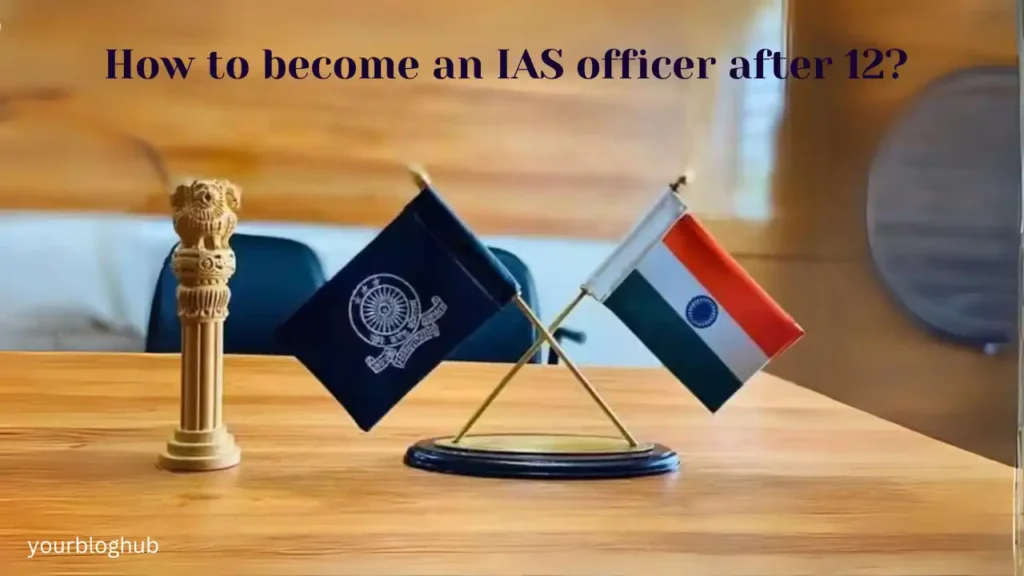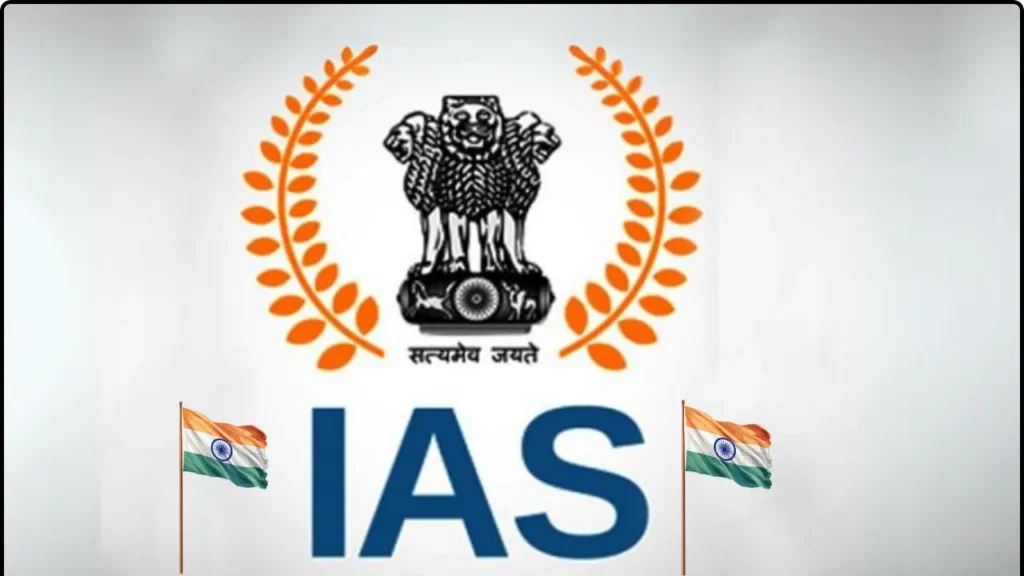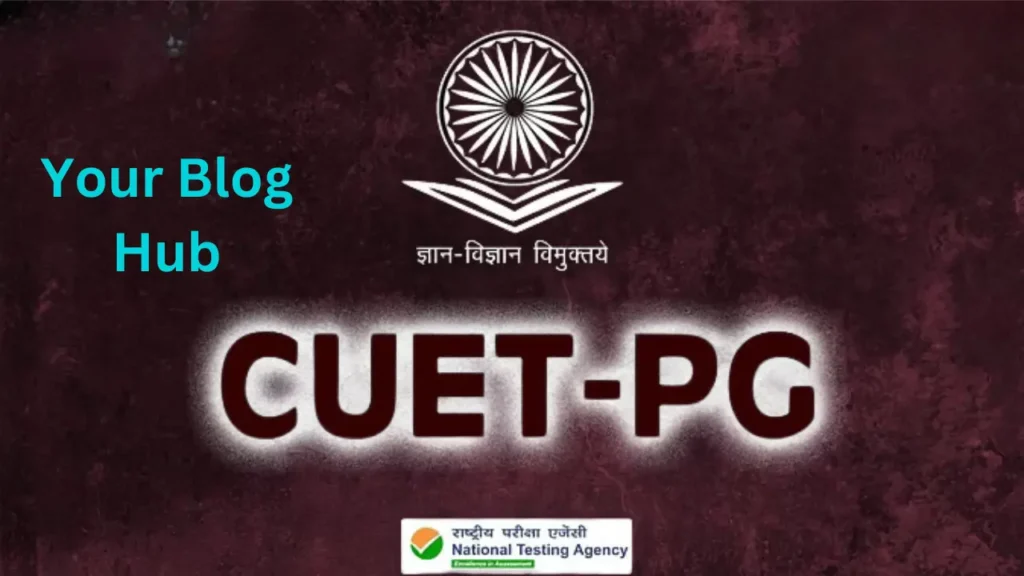Becoming an officer in the Indian Administrative Service (IAS) is a lucrative and hard path that demands academic achievement, strategic planning, and dedication. The procedure starts immediately after the completion of the 12th grade for individuals who want to serve their country at the highest administrative level. We’ll lead you through the detailed road map in this extensive guide to help you realise your dream of becoming an IAS officer.

How to become an IAS officer?
Those who want to become IAS Officers must first pass all three parts of the UPSC CSE test and then go through training at the Lal Bahadur Shastri National Academy of Administration (LBSNAA). A lot of people want to join the Indian Administrative Service (IAS), which is one of the most prestigious jobs in the country. The UPSC Civil Services Exam can be taken by any Indian person who is at least 21 years old and has a bachelor’s degree from a recognised university.
Becoming an IAS officer is an honourable and difficult job that needs commitment, hard work, and planning. To become an Indian Administrative Service officer, you need to do well in the Prelims, Mains, and Interview and get more than the minimum number of marks needed.
How to Become an IAS Officer after 12th?
In the unlikely event that you have finished your 12th grade education. And now you can’t sleep because of your desire to become a vibrant IAS or IPS official. I promise you, you belong in UPSC.
Civilsdaily receives a plethora of questions on these careers every day. It has been observed that the penultimate year of school is when UPSC dreams are realised the most. In case the desire to become an IAS or IPS official has ignited within you, let us investigate the allies who can guide you towards LBSNAA.

A bachelor’s degree from an accredited university is required to become an IAS officer. After completing the 12th standard, there is no direct entry into the IAS. Following high school, the following are some professional preparation suggestions for becoming an IAS Officer:
Complete your 10+2 coursework in any stream (science, commerce, arts, etc.) from any approved board. Nonetheless, there are some topics included in the Arts stream that are also covered in the UPSC syllabus.
Develop the daily practice of reading the newspaper in addition to your high school coursework to be informed about global current events.
Understand the entire syllabus and exam format for UPSC, and attempt to study subjects covered in previous year’s Prelims and Mains papers by using internet resources or by joining a library.
Select a bachelor’s degree programme at any accredited university. You are free to select any subject that piques your interest because there are no set requirements. It is advised to choose courses like history, geography, economics, political science, public administration, etc. that are covered in the UPSC syllabus. That being said, it’s not required.
Candidates should begin their preparations in accordance with the syllabus after class 12; this could take up to 8–12 months or more. It is dependent on the candidates’ aptitude and diligence. To continue with their preparations, the candidates must be inspired.
Several guidelines that need to be adhered to following graduation from class 12 in order to get ready for the IAS exam
Applicants must register in undergraduate programmes in any field, including journalism, engineering, medicine, management studies, and the arts.
Applicants must graduate with honours from an accredited college or university with an overall GPA of at least 50%.
To receive appropriate guidance regarding exams and patterns, as well as how to study and where to start, they must enrol in coaching. Candidates will receive appropriate instruction from coaching centres.
To stay informed about current events worldwide, candidates should read weekly or monthly periodicals as well as daily newspapers.
To take the test, candidates must complete the UPSC CSE form.
Applicants may also complete the form in order to take the preliminary exam.
It is required of candidates to read the NCERTs, select their elective subjects, and begin studying.
Since there are only so many chances available, it is advised that applicants save their chances until they are completely ready for the test.
Steps to Become an IAS Officer
It is an honour and a challenge to become an officer in the Indian Administrative Service (IAS). These are the most important steps you need to take:
- Required Level of Education:Get your bachelor’s degree from a well-known college or university. You don’t have to have a certain type of degree, but ones in political science, history, public administration, sociology, or any other related field can be helpful.
Select Your Optional Subjects: - Choose your optional topics for the Civil Services Examination (CSE):These subjects are a crucial part of the examination, and you should pick them based on your interests, strengths, and the scoring potential of the subject.
- Prepare for the Civil Services Examination (CSE):The CSE is run by the Union Public Service Commission (UPSC). It consists of three stages:Preliminary Examination: Tests your general knowledge and ability through multiple-choice questions.
- Main Examination: Consists of written exams on different subjects.
- Interview/Personality Test: Evaluates your personality, communication skills, and understanding.
- Understand the Exam Pattern:Familiarize yourself with the CSE test pattern, syllabus, and marking system. Stay updated on current affairs, national and international events, and socio-economic problems.
- Enroll in a Coaching Institute (Optional):While not mandatory, many aspirants opt for coaching institutes to receive advice, study materials, and test series. Choose a reputable institute to improve your preparation.
- Self-Study and Time Management:Develop a disciplined study routine and give sufficient time to cover the vast syllabus. Focus on comprehensive learning, including understanding ideas, practicing answer writing, and keeping updated with current affairs.
- Practice Answer Writing:Effective communication is important for success in the Main Examination. Practice writing answers to previous years’ questions, and seek comments to improve your writing style and presentation.
- Stay Informed and Read Widely:Develop a habit of reading newspapers, magazines, and online resources to stay updated on current events. This will not only help in the preliminary test but also in the interview round.
- Maintain Physical and Mental Health:The IAS profession expects both physical and mental fitness. Engage in regular exercise, yoga, or other activities to keep good health. Practice stress management techniques to handle the pressure of the tests and the job.
- Appear for the Interview:If you pass for the Main Examination, you will be called for the interview round. Prepare for questions linked to your background, education, hobbies, and current affairs. Showcase your analytical and decision-making skills.
- Clear Medical Examination:After successfully completing the interview, you need to take a medical examination to ensure you are fit for the service.
- Final Selection and Training:Based on your success in the CSE and the interview, the UPSC will release the final merit list. Once selected, you will receive training at the Lal Bahadur Shastri National Academy of Administration (LBSNAA) in Mussoorie.
Can Commerce Students become IAS Officers?
Commerce students who aim to become IAS officers should focus on a well-rounded preparation strategy. It is crucial to have a good grasp of subjects like economics, finance, and accounting, which are taught under the commerce stream. However, they should also pay attention to other topics like history, geography, polity, current affairs, and general studies, as these are equally important for the Civil Services Exam.
Moreover, choosing the right optional subject can greatly impact one’s chances of success. While commerce is not an optional subject, commerce graduates can pick subjects like economics, public administration, or any other subject they have a keen interest in and are comfortable with.



